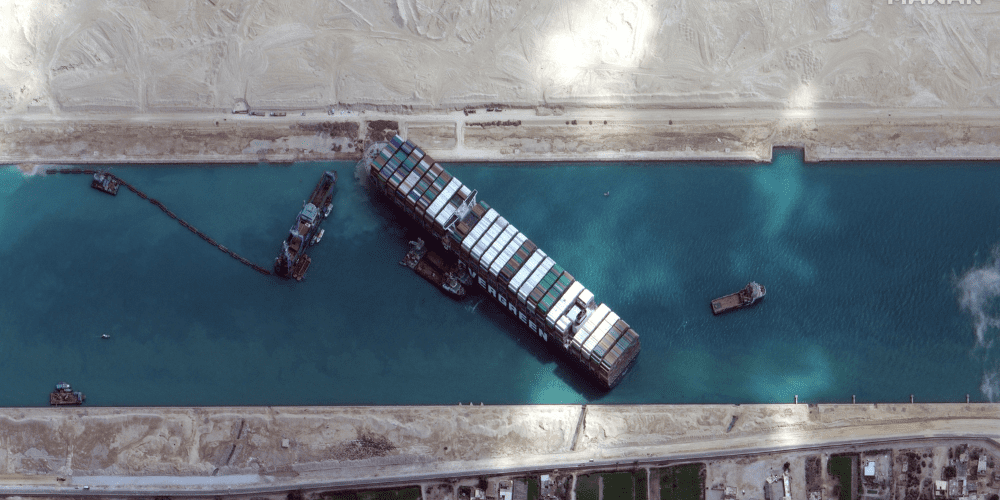It’s been almost a week since the Ever Given cargo ship got stuck in the Suez Canal, causing a major crisis in one of the world’s biggest trade routes.
On Sunday, salvagers sought to take advantage of the rising tide from the full moon to free up the 220,000-tonne vessel. As of Monday, the ship has now been re-floated and is being secured.
A backlog of ships will put significant delays on trading as the canal remains blocked.
10% of global trade travels through the waterway which provides a more efficient route between Europe and Asia. As some ships wait and hope for the canal to be cleared, some will be weighing up taking alternative routes but the options aren’t great. The only other viable way for large cargo ships is to travel all the way around Africa, which would add weeks on to shipping times.
“If they start sailing (prematurely) around Africa, they are guaranteed a two- to four-week delay and several million [dollars] extra costs in fuel,” Basil Karatzas, CEO of Karatzas Marine Advisors & Co. told NPR.
How will this impact the global economy and supply chains?
According to shipping journal Lloyd’s List, an estimated $9.6 million (USD) worth of goods travel through the canal every day.
With scarcely any rail or trucking alternatives, the majority of good shipped from Asia to Europe go through the canal, Sharat Ganapati, economics professor from Georgetown University told USA Today.
The current crisis in the Suez Canal has put added pressure to a global supply chain already impacted by the coronavirus pandemic.
Shipping of raw materials and parts to Europe, such as cotton, petroleum and auto parts, are expected to be delayed, which could have a significant impact on European businesses. Countries like Spain, Italy and France could see a rise in gas prices, while the German economy may suffer from the impact on car manufacturers.
Other countries like the United States, Australia and New Zealand, will see less of an impact as they use different shipping routes from Asia, but may still see a flow-on effect due to the “interconnected nature of global manufacturing and commerce” says NPR‘s Scott Neuman and Jackie Northam.




